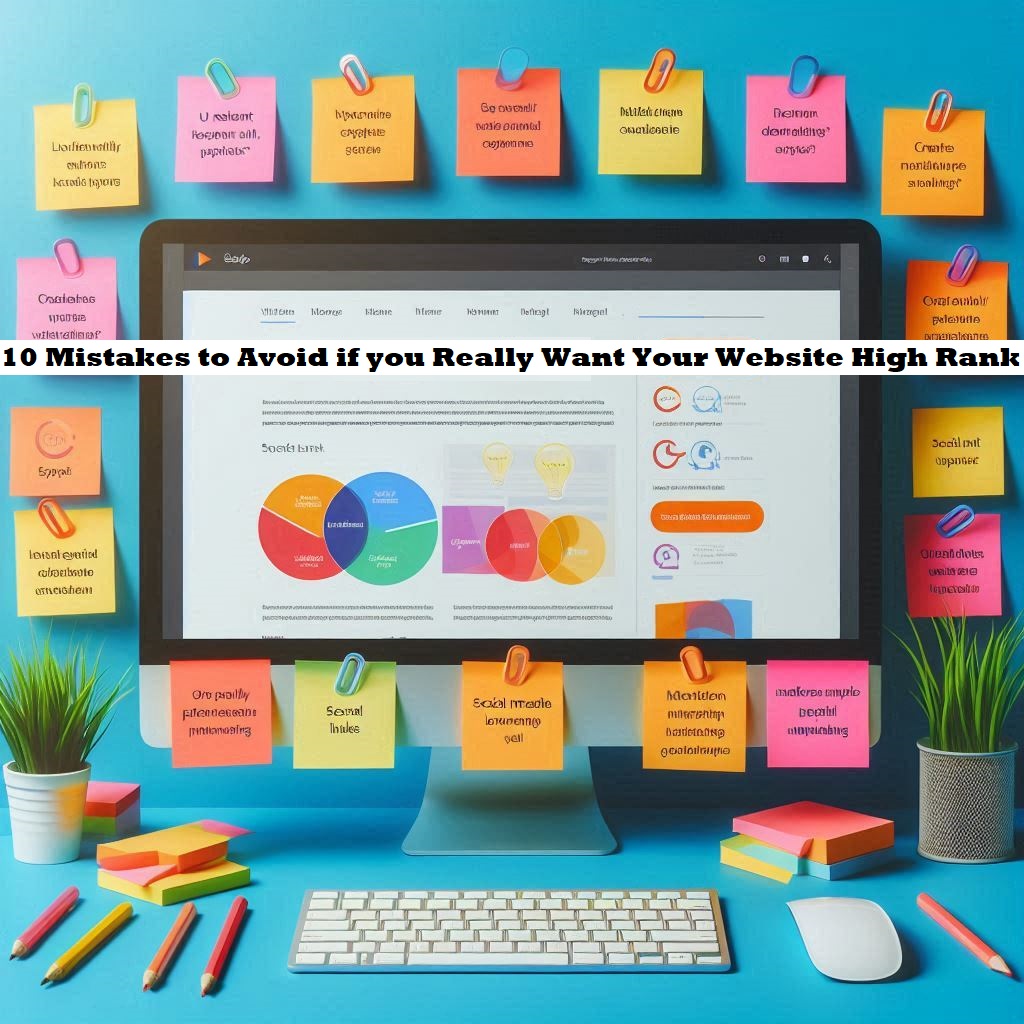
By avoiding the below common SEO pitfalls and focusing on best practices like keyword research, content quality, site speed, mobile optimization and link building, you can give your website the best chance of ranking well in search results. It’s important to remember that SEO takes time and consistency to see results.
-
Overlooking keyword research
Failing to do thorough keyword research and using the wrong keywords can prevent your content from being found by your target audience.
-
Ignoring page speed
Having a slow website with pages that take too long to load leads to poor user experience and lower rankings from search engines like Google.
-
Overusing keywords
Stuffing too many keywords into your content can make it unreadable and result in penalties from search engines.
-
Not optimizing page titles
Failing to create unique, relevant and concise page titles makes it harder for users and search engines to understand your content.
-
Neglecting mobile optimization
With mobile-first indexing, having a website that is not mobile-friendly can significantly hurt your rankings.
-
Buying spammy backlinks
Attempting to game the system by purchasing low-quality backlinks can lead to penalties from search engines.
-
Using excessive Flash content
Relying too heavily on Flash animations confuses search engines and may reduce rankings.
-
Thin content pages
Having pages with very little text content, like image galleries, can be seen as low-quality by search engines.
-
Ignoring meta tags
Not optimizing meta descriptions and other meta tags makes it harder for search engines to understand your content.
-
Not tracking analytics
Failing to monitor your website’s performance and SEO metrics prevents you from identifying issues and optimizing effectively.
Tips to Improve Your Website High Rank
- Conduct thorough keyword research to identify the most relevant and high-potential keywords to target.
- Optimize page speed by compressing images, reducing file sizes, and using a fast web host to ensure fast loading times.
- Structure content with proper HTML tags – use H1 for the main title, H2-H6 for subheadings, and incorporate keywords naturally.
- Improve dwell time by creating engaging, useful content that keeps visitors on your site longer.
- Earn backlinks from high-authority, relevant websites through tactics like creating linkable assets, broken link building, and guest posting.
- Optimize for mobile by ensuring your site is responsive and mobile-friendly, as Google prioritizes mobile-first indexing.
- Fix broken links and improve overall site architecture to enhance user experience and crawlability.
- Improve content readability with short paragraphs, bullet points, images, and scannable formatting.
- Leverage schema markup to make your listings more informative and eye-catching in search results.
- Continuously monitor rankings, track metrics like organic traffic and conversions, and iterate your SEO strategy based on performance.
- Leverage tools like Google Keyword Planner, Ahrefs, SEMrush, etc. to find relevant keywords, analyze search volume, and assess keyword difficulty.
- Organize your keywords into related topic clusters rather than treating them individually. This helps you create more cohesive, comprehensive content.
- Look at how keyword search volume fluctuates over time and adjust your targeting accordingly, especially for seasonal topics. Evaluate keywords not just on search volume, but on how valuable they are to your business goals, whether that’s driving traffic, leads, or sales.